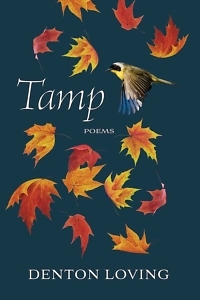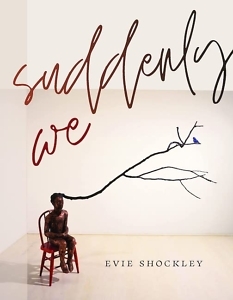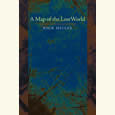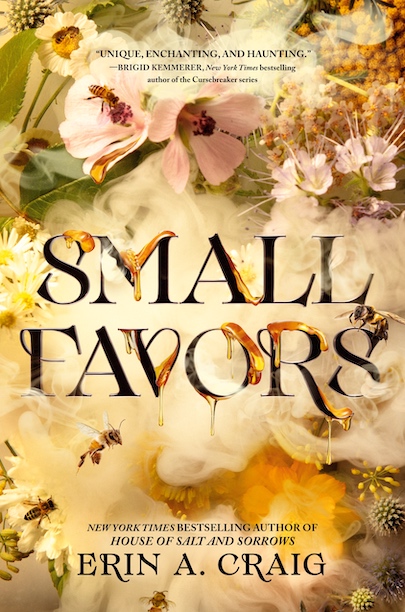A Living Pulse
Past and present mingle in collections by Loving, Shockley, and Underwood
FROM THE CHAPTER 16 ARCHIVE: This review originally appeared on June 27, 2023.
***
Denton Loving’s Tamp
The Cumberland Gap farmland where Denton Loving lives suffuses the atmosphere of his poems in consistently powerful ways. Loving’s memorable debut collection, 2015’s Crimes Against Birds, established his ability to engage the orchards, cattle grazing fields, and barn lofts of his upbringing with fresh, original observations. Part of that unique perspective involves the pull of the dream world.
 Now, with Tamp, Loving has deepened his vision with the ever-present undertow of grief, speaking to the aftermath of his father’s death. Tamp opens with “Another River of the Underworld,” a tense, evocative dreamscape. The speaker tells us, “I walk the banks / of an ancient, unnamed river / surrounding the island of my dead.” These lines set the tone for the rest of the collection, in which the underworld of dreams always hovers close. In Loving’s poems dreams provide a constant source of both mystery and understanding. “So much else / remains obscure, but this I know: / sleep is another kind of prayer.”
Now, with Tamp, Loving has deepened his vision with the ever-present undertow of grief, speaking to the aftermath of his father’s death. Tamp opens with “Another River of the Underworld,” a tense, evocative dreamscape. The speaker tells us, “I walk the banks / of an ancient, unnamed river / surrounding the island of my dead.” These lines set the tone for the rest of the collection, in which the underworld of dreams always hovers close. In Loving’s poems dreams provide a constant source of both mystery and understanding. “So much else / remains obscure, but this I know: / sleep is another kind of prayer.”
These tensions within the poems create a sense of haunting immediacy. Whether the speaker is feeling baffled that everyday life continues despite his acute grief or remembering by name some of the cows he held in special affection during childhood, each poem stretches taut between our perception of the material world around us and the ineffable, inescapable pull of a deeper world.
Tamp
By Denton Loving
Mercer University Press
70 pages
$20
Evie Shockley’s suddenly we
To read Evie Shockley’s latest collection, suddenly we, is to be swept up by its abundant, multivalent vision. Shockley, who grew up in Nashville, calls upon myriad sources past and present — including pandemic life, systemic violence against Black women, and thrilling bodies of work created by innovative Black artists.
 Numerous poems capture the fractured sense of contemporary communications. In “one foot out of the panorama,” Shockley depicts our familiar experience of “the stress of knowing half a thing” in widely spaced wisps of short lines bringing light and air into the increasingly pressurized daily world that we experienced during the pandemic.
Numerous poems capture the fractured sense of contemporary communications. In “one foot out of the panorama,” Shockley depicts our familiar experience of “the stress of knowing half a thing” in widely spaced wisps of short lines bringing light and air into the increasingly pressurized daily world that we experienced during the pandemic.
Other poems, like the thrilling “dive in,” swirl together memory and present-time experience, creating an urgent, joyful evocation of pleasure: “the outrageous // sound of this joy, the silence at center, we’re / in over our heads ~ a body can get carried // away in that headiness, i did, and you with me, / swept up in a wave of language and tumbled.”
Poet Matthew Shenoda has described suddenly we as a “polyphonic celebration.” This sense of collective voice gathers speed and force throughout the book. suddenly we achieves a growing sense of cohesion even as it subdivides and shapeshifts, making space for new perspectives and formal explorations. Its resulting effect is indeed celebratory and lingers long after we have finished reading.
suddenly we
By Evie Shockley
Wesleyan University Press
112 pages
$15.95
Susan O’Dell Underwood’s Splinter
The modern-day Appalachians who populate East Tennessee native Susan O’Dell Underwood’s poems maintain a split consciousness, hovering between the present and the past. Splinter’s two opening poems, “Appalachian Diaspora” and “Holler,” establish Underwood’s perspective on the complex legacy of Appalachians leaving home for economic and educational opportunity — whether they leave for their own motivations or must flee collapsing industry, farmland losses, or ecological upheavals.
 For those who stay and for those who go, Underwood’s work insists, the costs are high. Splinter offers a reckoning with this inheritance. These poems depict moments when the past breaks into a distracted present-day consciousness, demanding greater depth and awareness. As the speaker of “Ghazal of the Farmer’s Daughter” admits when she looks back on meals prepared from the stock and crops of her family’s land: “I took for granted those fields of grasses, marrow to marrow, / muscle and heart, bones that made my bones to carry this body.”
For those who stay and for those who go, Underwood’s work insists, the costs are high. Splinter offers a reckoning with this inheritance. These poems depict moments when the past breaks into a distracted present-day consciousness, demanding greater depth and awareness. As the speaker of “Ghazal of the Farmer’s Daughter” admits when she looks back on meals prepared from the stock and crops of her family’s land: “I took for granted those fields of grasses, marrow to marrow, / muscle and heart, bones that made my bones to carry this body.”
The dissonance between experiences of Appalachians past and present permeates this collection, culminating in its final poem, “I Stand Here Frying Okra.” Echoing Tillie Olsen’s classic story of intergenerational distance, Underwood’s speaker contrasts her own contemporary cooking methods with her grandmother’s. But she also tracks a point of convergence between memory and experience, mingling old and new.
In this moment “[when] there’s no resisting,” the “savor of childhood / bright and vivid as her voice” returns. The speaker knows this dish will taste exactly as she remembers, “robust as a living pulse on my tongue.” These legacies persist, Underwood tells us, humming beneath the surface of everyday life — not for us to idealize or sentimentalize but for us to savor.
Splinter
By Susan O’Dell Underwood
Madville Publishing
92 pages
$18.95

Emily Choate is the fiction editor of Peauxdunque Review and holds an M.F.A. from Sarah Lawrence College. Her fiction and essays have appeared in Mississippi Review, storySouth, Shenandoah, The Florida Review, Rappahannock Review, Atticus Review, Tupelo Quarterly, and elsewhere. She lives near Nashville, where she’s working on a novel.


